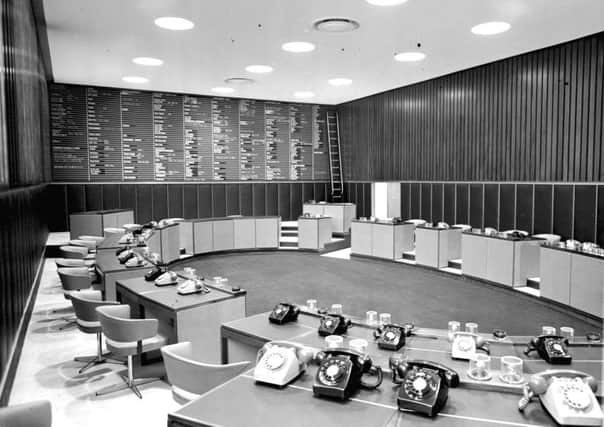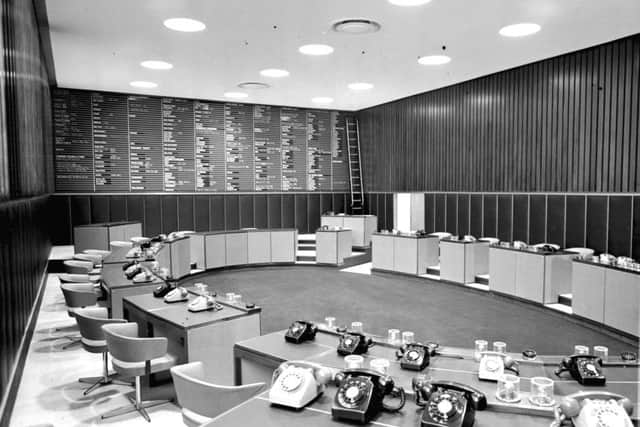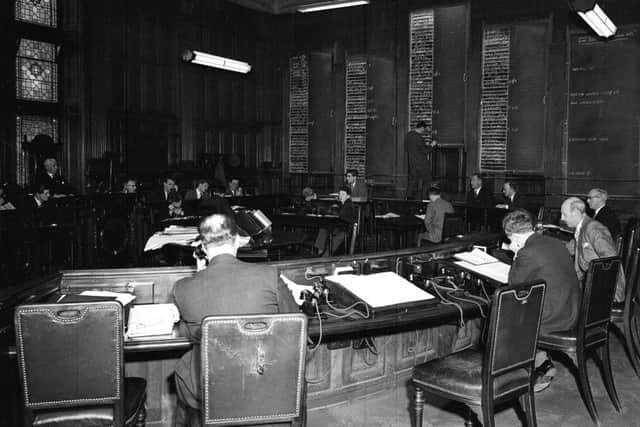Should Scotland have its own stock exchange again?
This article contains affiliate links. We may earn a small commission on items purchased through this article, but that does not affect our editorial judgement.


The ethically focused Social Stock Exchange has prompted interest by giving details on its plans to launch a Scottish arm later this year, after unveiling the idea in August when it described it as a return to the way things used to be north of the Border.
“Local businesses should be able to go to the public locally to raise finance to expand their business,” said Mike McCudden, director of the Scottish Social Stock Exchange, said at the time.
Advertisement
Hide AdAdvertisement
Hide Ad“We kind of lost sight of that over the years when all local exchanges essentially disappeared back in the 1970s and 1980s.”


Scotland’s history of its own exchanges dates back to the 19th century, when local versions were formed in Aberdeen, Edinburgh and Glasgow. This enabled easier trade in the likes of Bank of Scotland, Clydesdale Bank and Royal Bank of Scotland, and was given a key boost by advances in telephony. They were followed by exchanges in Dundee and Greenock.
However, when there was a call in the early 1960s for stock-market consolidation, steps were taken to merge those around Scotland.
It was agreed that the Scottish Stock Exchange would be established with a total membership just exceeding 200, combining Glasgow, Aberdeen, Dundee and Edinburgh, and the latter’s stockbrokers held their last dealing session at 2 North David Street. The new arrangements became effective at the start of 1964, but did not include the Greenock exchange and it was wound up the following year. The four participating exchanges operated as before until all share dealings were in 1971 centralised at the revamped Glasgow Stock Exchange building in what is now known as Nelson Mandela Place, before being absorbed in 1973 by the London Stock Exchange.


More than 40 years later, the Social Stock Exchange is certainly confident over its prospects north of the Border as it prepares to revive the sector. Last week it revealed its intention to launch in Edinburgh within months, coming at the end of a study into its feasibility conducted with the city’s council, and having previously targeted Glasgow and November 2016 for its debut. Looking at its business model and appeal, McCudden said recently: “Investing for impact is a significant step forwards in democratising financial markets. Instead of a fund manager pushing your savings into an anonymous vehicle, you can instead direct that money in a way that not only provides you with a financial return, but also in a way that improves society.” And with firms in Scotland often struggling to reach critical mass as they battle to access capital, he added: “We have to be forward-thinking… and look at new, innovative ways to support pro-social [or] environmental businesses.”
Also touching on the issue of much-needed capital was councillor Alasdair Rankin, finance and resources convener at the City of Edinburgh Council, who stated: “Set against a backdrop of falling council budgets, we are keen to explore new ways of helping businesses to raise the funds they need to deliver much-needed services to local communities.
“Edinburgh, and indeed Scotland, is already home to a growing number of businesses that deliver a real social or environmental impact and… we hope to learn more about how we can help these businesses access capital – and indeed allow investors to back these initiatives.”


Advertisement
Hide AdAdvertisement
Hide AdMcCudden said its planned launch north of the Border proves that Scotland “leads the charge globally in finding new ways to finance good”.
However, in 2014 before the independence referendum, the idea of Scotland having its own stock exchange came in for examination. London Business School (LBS) and Walbrook Economics published the “Scotsie 100” Index of Scotland’s top-100 quoted firms, including Aggreko, Cairn Energy and Royal Bank of Scotland, found that £1 invested in the index in 1955 would have grown to £648 (with dividends reinvested), but invested in the rest of the UK would have grown to £1,168.
LBS even said it would be better for Scotland’s smaller companies to keep using the Alternative Investment Market instead of setting up a local version, for example.


Yet the Social Stock Exchange is not moving from a standing start in Scotland. It has an established business model, with 43 members with a collective valuation of more than £2 billion and, crucially, is looking to harness growing interest in so-called “impact investment”. Furthermore, it is looking to stimulate the Scottish economy when it is lagging behind the UK’s, and feedback has been “very positive”, said McCudden. “We’re really motoring now,” he insisted.
